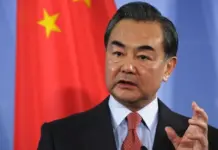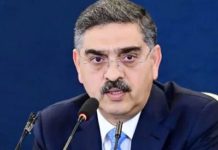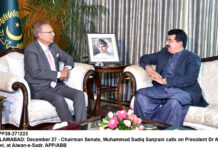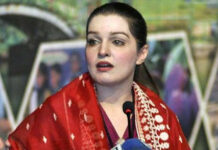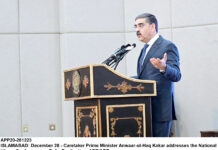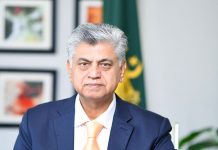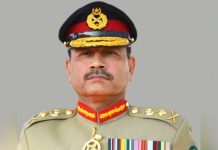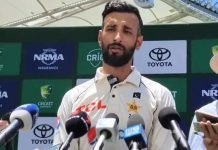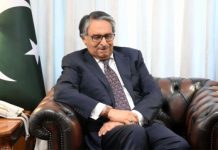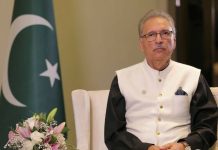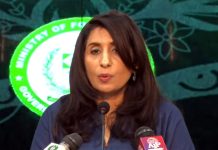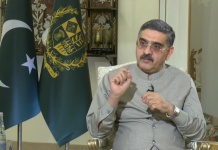
According to Kashmir Media Service, restrictions imposed under section 144 and total ban on internet and prepaid cellular phones are badly affecting people across all spheres of life.
The ongoing internet gag is the longest ever witnessed in the Kashmir Valley. The previous longest was witnessed during the 2016 mass uprising. Though frequent internet shutdown is nothing new for the Kashmiris as in the past decade the service was snapped multiple times. However, this time not only mobile internet services were barred but broadband services were also snapped.
Although the occupation authorities recently restored voice calls on postpaid mobile phones but thousands of subscribers found their services disconnected by telecom companies due to non-payment of bills for the period of the suspension of services. The landline phones were restored last month but due to the switch over to cellular networks they are less in number as compared to mobile phones.
Meanwhile, people continue to observe silent protest against Indian occupation and the 5th August illegal action of the Modi government of revoking the special status of occupied Kashmir by keeping their shops and business establishment closed for most of the day besides desisting from going to offices and schools. Some private vehicles are plying but public transport is off the roads.
Meanwhile, village council elections were held on Thursday across India-held Kashmir, with the detention of many mainstream local politicians and a boycott by most parties prompting expectations that the polls will install supporters of the central Hindu nationalist-led government that revoked the region’s semi-autonomous status in August.
Indian officials are hoping the election of leaders of more than 300 local councils will lend credibility amid a political vacuum and contend they will represent local interests better than corrupt state-level political officials.
Heavy contingents of police and paramilitary soldiers guarded polling stations across the region. At some places, soldiers patrolled streets around polling stations. Police said no violence was reported.
Thursday’s elections were boycotted by most political parties, including those whose leaders had been sympathetic to the central government but are now in makeshift jails or under house arrest. India’s main opposition Congress party boycotted as well, possibly allowing a clean sweep for Prime Minister Narendra Modi’s Bharatiya Janata Party.
The BJP has a very small base in the Kashmir valley, the heart of a decades-old anti-India insurgency in the region of about 12 million people.
In Thursday’s elections, members of more than 300 Block Development Councils formed last year chose leaders. Each block comprises a cluster of villages across Jammu and Kashmir, a state that India’s Parliament downgraded in August to a federal territory, a change that takes effect on October 31.
About 1,000 people ran in the elections. In at least 25 councils, candidates ran unopposed.
Most of the candidates and thousands of council members, the electorate for Thursday’s vote, have lived for months in hotels in Srinagar, the region’s main city, because of security concerns. In the past, Kashmiris fighting against Indian rule have targeted candidates.
Officials tout the councils, which will be responsible for allocating government funds, as grassroots democracy. But observers say the system lacks legitimacy in Kashmir.
Political scientist Noor Ahmed Baba said the exercise, at least in theory, is an “important layer of democracy” but questioned conducting it in “extremely difficult and abnormal times.”
“When most people are bothered about their basic freedoms and livelihood, facing crushing restrictions, you’ve these elections,” Baba said. “This is more like completing a formality. It looks more like an artificial exercise.”
Council elections held last December were boycotted by separatist leaders and armed Kashmiri groups that challenge India’s sovereignty over Kashmir. Both separatists and these groups have called elections in Kashmir an illegitimate exercise under military occupation.
About 60 per cent of the 21,208 village council seats in the Kashmir valley are vacant because no one ran for them. The winners of another 30 per cent were elected unopposed.
Before downgrading Kashmir’s status, New Delhi sent tens of thousands of additional troops to the already heavily militarised regions, imposed a sweeping curfew, arrested thousands, and cut virtually all communications.
Authorities have since eased some restrictions, lifting roadblocks and restoring landlines and some mobile phones. They have encouraged students to return to school and businesses to reopen, but Kashmiris have largely stayed home, in defiance or fear amid threats of violence.
The Modi government says removing a constitutional provision that gave Kashmir some measure of autonomy since independence from British rule in 1947 was necessary to give rights afforded other Indian citizens, usher in greater economic development and do away with the sense of separateness that BJP leaders say has cultivated the separatist movement.
But as the crackdown continues, Kashmiris have quietly refused to resume their normal lives, confounding India at their own economic expense.
Shops have adopted new, limited hours of operation in the early morning and evening. Taxi drivers haven’t returned to the roads. Shailendra Kumar, the chief electoral officer, said the government had planned for the polls in June.
Conducting the elections during an ongoing crackdown “could be a discussion point,” Kumar said, “but should we delay it for another year? I don’t think so. This is a clear-cut system governed by rules, and rules don’t ask me to gauge mood and sentiments but to facilitate the process.”
Some Kashmiris view the polls cynically as a move to create a new political elite loyal to the Modi government that found its plans widely rejected in the region.
“Every election here is meant to pull wool over eyes of Kashmiris and create a smoke screen that everything is fine here,” said Mohammed Abdullah, a college teacher. “It’s also meant to convey to the world that India is a democracy and Kashmir is part of this vibrant democracy.”
To Abdullah and other Kashmiris still reeling from the changes in the region, Thursday’s polls suggest the opposite.

